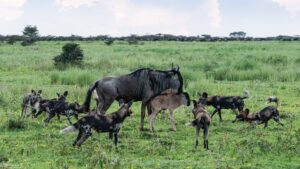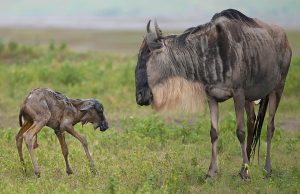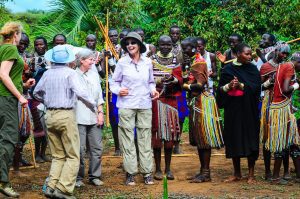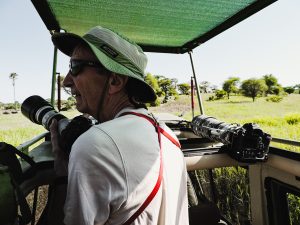Quick Facts
About Mikumi National Park
Peak Time
June - October
Best Time To Go
Year-Round
Famous For
Wildlife viewing near Dar es Salaam
Home Of
Elephants, lions, giraffes, zebras, and over 400 bird species
Overview
Mikumi National Park is one of Tanzania’s most accessible wildlife destinations, located just 283 kilometers west of Dar es Salaam, making it a popular choice for day trips or short safaris. Covering an area of about 3,230 square kilometers, Mikumi is part of the larger Selous ecosystem and offers classic safari experiences with its diverse wildlife, stunning landscapes, and open savannahs. The park is home to a variety of animals, including elephants, lions, zebras, and giraffes, and is renowned for its wildlife-rich Mkata Floodplain, often compared to the Serengeti due to its teeming wildlife. With Mount Udzungwa providing a dramatic backdrop, Mikumi is a fantastic destination for both first-time visitors and seasoned safari-goers.
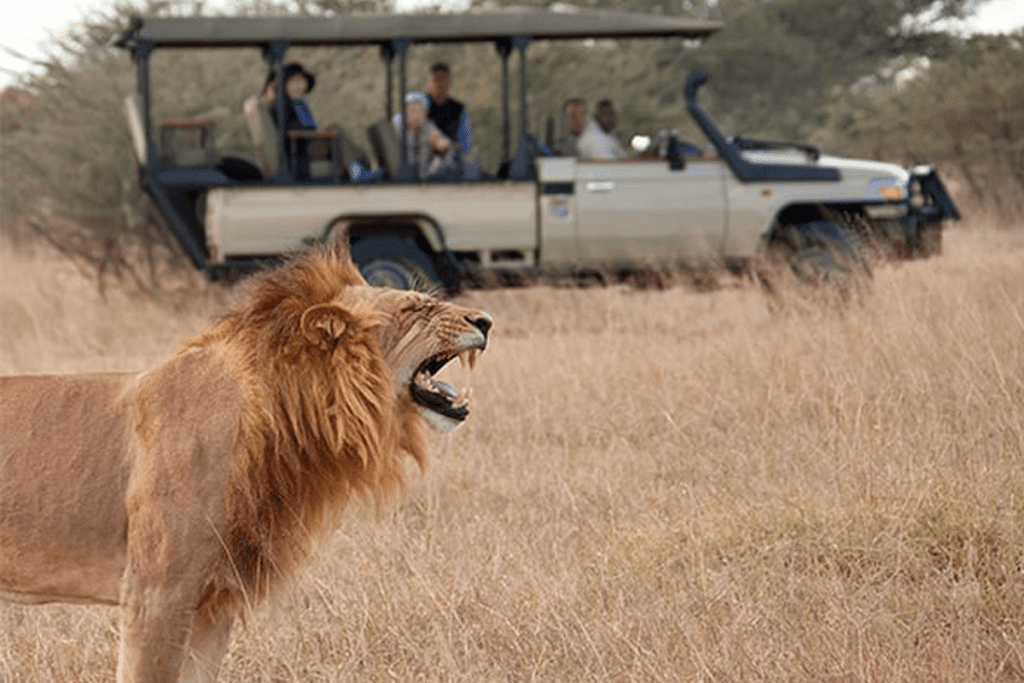
Wildlife
Mikumi National Park is home to an impressive range of wildlife, particularly within the open plains of the Mkata Floodplain, which is often referred to as a “mini-Serengeti.” Here, visitors can spot elephants, buffaloes, giraffes, zebras, and wildebeests grazing across the savannah. The park is also known for its healthy population of lions, which can often be seen lounging on the plains or stalking prey. Other notable predators include leopards, hyenas, and jackals. Mikumi is also a haven for bird enthusiasts, with over 400 species recorded, including lilac-breasted rollers, bateleur eagles, and various types of herons and storks.
Mkata Floodplain
The Mkata Floodplain is the heart of Mikumi National Park and one of the best areas for wildlife viewing. Its flat, open grasslands attract large herds of zebras, wildebeests, and buffaloes, making it a prime location for predator sightings. The Hippo Pools, located within the floodplain, are another highlight, where visitors can watch hippos wallowing in the water and see crocodiles basking along the shores. The abundance of wildlife and the ease of spotting animals make the Mkata Floodplain one of the top attractions of the park.
Scenic Landscapes
While Mikumi National Park is best known for its open savannahs, the park’s landscape is incredibly diverse, offering a mix of rolling hills, acacia woodlands, and riverine forests. Mount Udzungwa and the surrounding Uluguru Mountains provide a striking backdrop, adding to the park’s scenic beauty. The park’s wide variety of ecosystems supports an abundance of wildlife and plant species, offering visitors a well-rounded safari experience in a relatively small, easily navigable area.
Activities
Mikumi National Park offers a variety of exciting activities, making it an excellent destination for both wildlife enthusiasts and casual visitors alike:
- Game Drives: Explore the park on guided game drives, where you’ll have the opportunity to spot elephants, lions, giraffes, and more, especially within the wildlife-rich Mkata Floodplain.
- Walking Safaris: Experience the park on foot with a walking safari, where expert guides introduce you to the smaller wonders of the park’s ecosystem and offer close-up wildlife experiences.
- Bird Watching: With over 400 bird species, Mikumi is a paradise for birdwatchers. Bring your binoculars to spot species like yellow-throated longclaws, African fish eagles, and secretary birds.
- Hippo Pools Visit: Watch hippos in their natural habitat, as well as other animals like crocodiles and waterbirds, at the scenic Hippo Pools.

Inspired by What You See? Let’s Bring Your Journey to Life!
Best Time to Visit
The best time to visit Mikumi National Park is during the dry season, from June to October, when animals are easier to spot as they congregate around water sources. However, the park is open year-round, and the green season from November to May offers lush landscapes, fewer crowds, and excellent bird-watching opportunities, as migratory species arrive.
Accommodation
Mikumi National Park offers a variety of accommodation options, ranging from luxury lodges to more rustic tented camps. Whether you’re looking for a comfortable lodge with sweeping views of the plains or a more intimate camping experience close to nature, Mikumi has something to suit every traveler’s needs. The park’s proximity to Dar es Salaam also makes it an ideal destination for day trips or quick getaways.
Why Visit Mikumi National Park
Mikumi National Park is a fantastic choice for anyone seeking a wildlife-rich safari experience close to Dar es Salaam. Its accessibility, combined with the diverse wildlife, beautiful landscapes, and excellent game viewing opportunities, make it an ideal destination for first-time safari-goers, families, and anyone looking for an easy yet rewarding wildlife adventure. Whether you’re watching lions roam the Mkata Floodplain or relaxing by the Hippo Pools, Mikumi offers the perfect blend of wildlife and scenery for an unforgettable safari experience.

